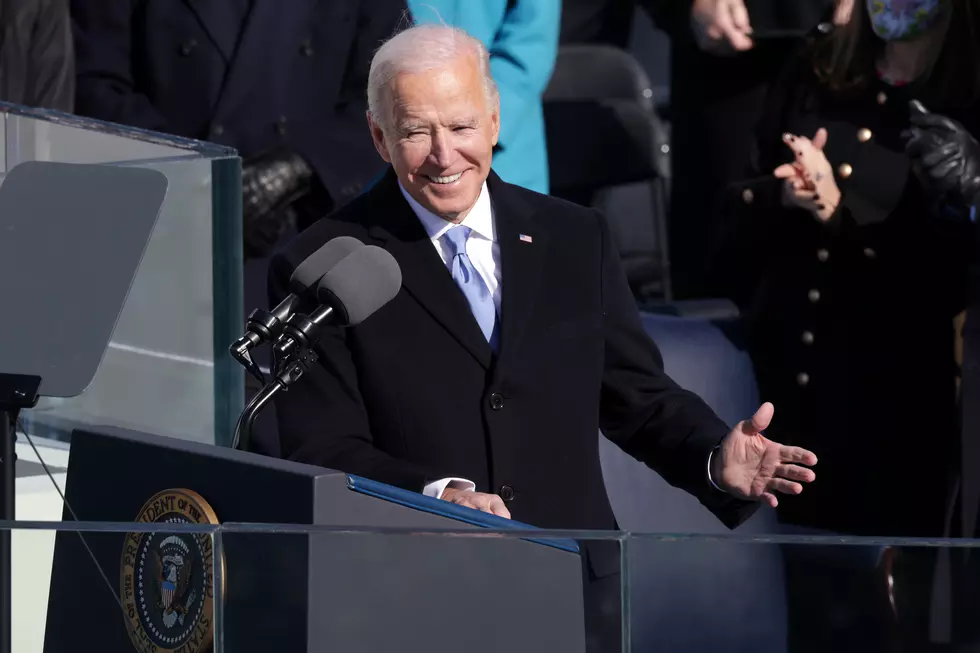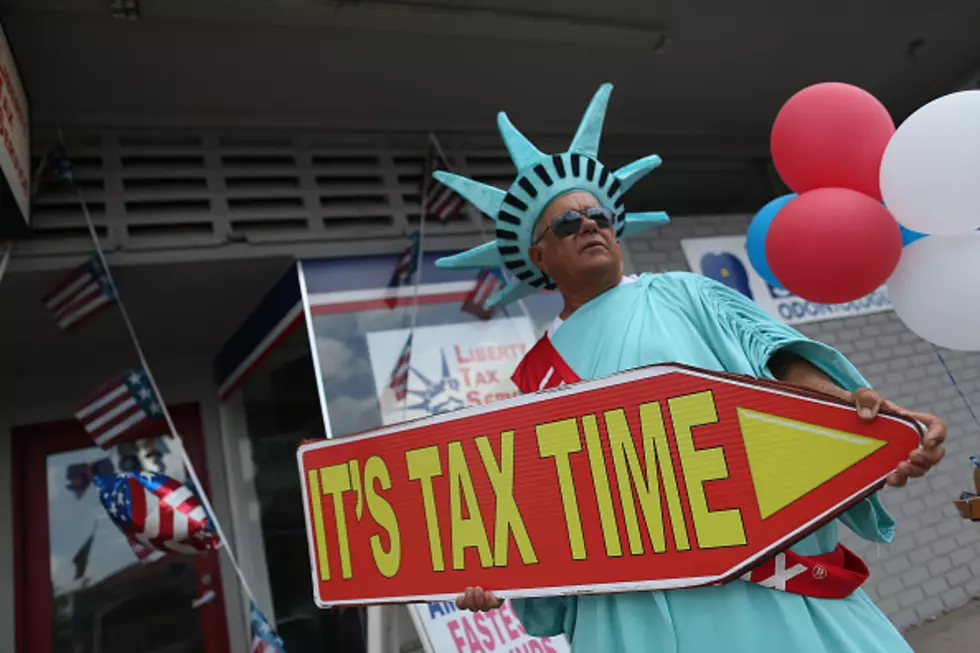
Biden Cabinet Members Avoid Huge Tax Hits Thanks to Little-Known Federal Law
Members of President Biden's Cabinet are able to punt paying taxes as they divest their assets to avoid conflicts of interest when they enter into public service, thanks to a little-known provision of federal law.
Under Section 2634 of federal elections law sits a unique provision to help soften the financial blow of new administration officials suddenly selling off assets: certificates of divestiture.
Since 1989, this tax provision has been offered by the Office of Government Ethics and has helped administration employees and appointees — including Cabinet members — defer paying capital gains taxes when they are required to sell assets as they enter public service.
Government appointees and employees are able to put off paying capital gains taxes as long as they reinvest their gains into less-conflicted interests, such as mutual funds and treasury bonds.
Energy Secretary Jennifer Granholm has two certificates of divestiture: one for shares in a variety of companies, including Apple, and one specifically for 240,520 shares in electric car company Proterra, where Granholm used to work, according to financial disclosure documents reviewed by Fox News.
Granholm recently sold her Proterra stock after weeks of scrutiny sparked by a presidential visit to the electric car company prior to Granholm's divestment from the company.
Because of her certificate of divestiture, Granholm will be able to defer paying millions in capital gains taxes. If the presidential visit increased Proterra’s value, then Granholm likely made more money from her divestiture than if she had sold prior to Biden's visit.
Biden has proposed doubling the capital gains tax in his multi-trillion dollar American Families Plan.
"Energy Secretary Granholm held millions of dollars of investments in an electric bus company. During her nomination hearing, she committed to the Senate that she would avoid the appearance of any conflicts of interest," said Sen. John Barrasso, R-Wyo., chairman of the Senate Energy and Natural Resources Committee, after it was announced that Granholm sold her stock.
"While she still owned these stocks, Secretary Granholm actively promoted electric vehicles and electric vehicle batteries," Barrasso continued. "President Biden took a virtual tour of the company and Vice President Harris toured one of its partner companies."
Barrasso added that even though Granholm has sold her shares in Proterra, "her actions appear to be a significant conflict of interest" and called for an investigation into the "whole situation" by the Department of Energy Inspector General.
Last week, the energy secretary officially sold her interests in Proterra, divesting from the company.
In her ethics agreement with the Biden administration, Granholm agreed to "avoid any actual or apparent conflict of interest" and to resign from her board position at Proterra upon confirmation; forfeit her unvested stock options in Proterra Inc. upon resignation of her position as board member of Proterra Inc.; and to divest her vested stock options and resulting stock if she exercises her vested stock options in Proterra "as soon as practicable but not later than 180 days" after her confirmation.
Granholm isn't alone – other Biden Cabinet officials and their spouses have filed certificates of divestiture, according to financial disclosure documents reviewed by Fox News, including Special Climate Envoy John Kerry, Treasury Secretary Janet Yellen, Secretary of State Anthony Blinken, Attorney General Merrick Garland, Commerce Secretary Gina Raimondo and Secretary of Defense Lloyd Austin. Austin has two certificates of divestiture.
An official deferring capital gains taxes on divested assets would incur the taxes "when they sell the new investment, not the original one," Virginia Canter, an expert on certificates of divestitures at liberal ethics watchdog Citizens for Responsibility and Ethics in Washington (CREW), told Fox News.
"The idea is that they're deferring it," Canter told Fox News. "And, the fact is, sometimes you're selling in a down market."
"During the Obama administration, nominees came in and they could've been selling at a loss, so there's no need for capital gain in the deferral," she continued.
"So I think it would tend to benefit somebody who had been in a company for a long, long time and had built up a lot of stock through executive compensation," Canter added, pointing to former George W. Bush administration Treasury Secretary Hank Paulson as an example.
Canter said Paulson had to divest his Goldman Sachs stock "in order to take the job," but the certificate of divestment allowed him to "diversify his portfolio."
"That's also probably an ancillary benefit, is if somebody is weighted in a particular stock, it allows them to diversify their portfolio," Canter said, adding that there are limits on what someone can invest in.
"Since you're limiting your subsequent investment, you may also not be maximizing your profit," she explained.
"It's hard to say if you're a clear winner or not just depending whether you come into the government, whether your selling would actually incur capital gains, whether it will allow you to diversity a portfolio of holdings that would otherwise be very concentrated," Canter said, adding there could be an opportunity cost as well.
The White House did not immediately respond to Fox News' request for comment.
Fox News’ Morgan Phillips contributed to this report.
Read More: Celebrities Arrested in Shreveport
More From News Radio 710 KEEL









